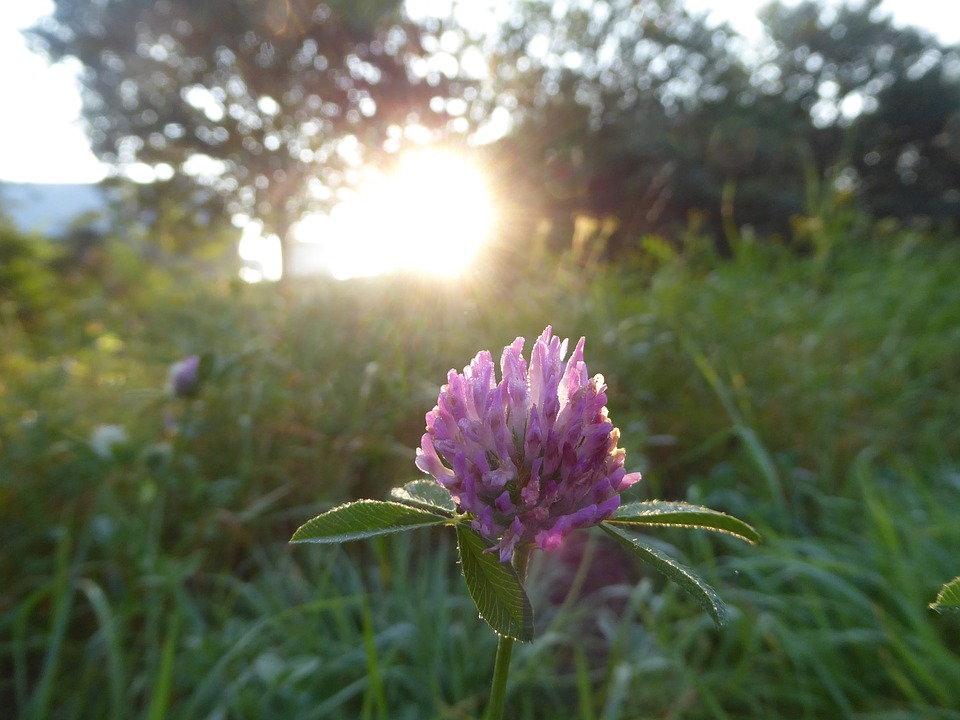
Some things in life are a mystery. Who built Stonehenge? Why can’t you wear white shoes after Labor Day? Why is the clover that annoyingly grows in your lawn so much greener than everything else? Those first two, we can’t help you with. But the second is not a mystery at all! Here at Lawn Love, we are familiar with lawn clover and how you can control it. Here’s everything you need to know about keeping your lawn clover-free!

Clover – What is it Good For?
You’ve probably noticed by now that the clover in your lawn is lush and green – possibly more so than the rest of your lawn. Why? Well, it’s simple chemistry. The clover absorbs nitrogen from the atmosphere to make it greener, but it also supplies your lawn with nitrogen — an important nutrient.
In fact, it wasn’t until very recently that clover was considered something undesirable in a lawn. When herbicides came along, clover was made a lawn villain. But even now you can find some grass seed suppliers that include clover in their lawn mixes because clover helps to keep your lawn healthy and more pest-resistant. It also reduces the amount of fertilizer you need to use to keep your lawn fed and healthy. Still, many homeowners want a perfectly groomed clover-free lawn. We can’t say we blame you! Just make sure you’re taking the right approach to ridding your lawn of clover.
Natural Strategies
The best way to control the clover in your lawn is to keep your grass healthy and dense. You can easily keep clover and other weeds out of the mix by adjusting the pH of your soil and keeping the nutrients at optimum levels. Remember how much clover loves nitrogen? Well, a lawn that is lacking in nitrogen will attract clover growth. So, it stands to reason that a lawn with properly balanced soil won’t need clover to help fill in the nitrogen gaps, so to speak. That’s why it’s so important to make sure your lawn has the right balance of nutrients.
Also, take a look at your mowing height. Mowing your lawn to a proper height for the type of grass you have and mowing it often will naturally discourage the growth of weeds. Remember – a healthy lawn is naturally weed resistant.
Another Way to Control Clover
There’s always the old-fashioned way to get rid of weeds – pulling them by hand! But many people are looking for a less, well, time-consuming approach. Enter chemical control.
If you have a large area you’d like to manage the weeds in without spending the entire weekend on your hands and knees, then you can use herbicides. Just make sure you read the directions, follow them, and keep kids and pets away! Look for a type of herbicide specifically for broadleaf weeds, which clover falls under. You should apply it in the early fall in anticipation for next spring’s clover growth.
So, there you have it! Clover isn’t necessarily a bad thing, but if you don’t want it growing in your lawn, it’s easy to give an eviction notice to either naturally or with the help of herbicides. Now go forth and create the clover-free lawn of your dreams!